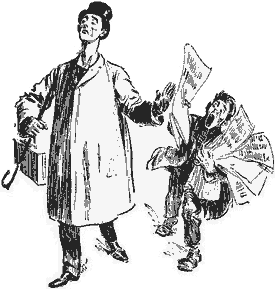Wage Claims
A “wage claim” involves nonpayment of wages. Under California law, “wages” includes salary, hourly pay, overtime, commissions, certain bonuses, vacation or paid time off (“PTO”).
There are special rules related to the payment of wages upon termination, whether the employee quits or is fired. Not following these rules can result in the assessment of “waiting time” penalties. Waiting time penalties are based on the “daily rate” of the employee for up to 30 days. The consequence of not paying an employee all wages owed, when they are owed can be very severe.
Overtime claims commonly arise when an employer erroneously classifies employees as “exempt” and only pays them a salary.

Unlike most other claims for money owed, employees with wage claims can take advantage of special remedies under the California Labor Code and the Federal Fair Labor Standards Act.
Under both of these laws employees who successfully sue for wages owed to them can recover attorney fees. There are also various penalties that can be recovered.
In addition, an employee can file a claim for wages with the California Labor Commissioner. The choice of which remedies to pursue should only be made after a thorough analysis of the claim.
For employers, wage and hour law is a virtual minefield. The ability of employees to file claims with the Labor Commissioner without the assistance of an attorney make employers very vulnerable.
While the amount of such claims may be relatively small, the time it takes an employer to defend them can be a devastating drain of resources. Paying these claims may be less expensive in the short run, but may cost an employer much more in the long run if the employer is perceived as an easy target.
The best approach is to have an attorney review all wage and hour practices.
Am I entitled to overtime if I am paid a salary?
Am I entitled to wages for hours that I am “on call?”
Am I entitled to wages for time spent reading and responding to e-mails or faxes?
Should I file my claim with the Labor Commissioner?
Do I have to wait until after I leave my employment to file a wage claim?
Can I recover any wages if my employer has gone out of business?
Am I entitled to overtime if I am paid a salary?
Getting paid a salary does not exempt employees from the wage and hour laws unless at least 50% of the employee’s time is spent doing executive, administrative or professional work. Family members and outside salespersons are also exempt. Being given a title, such as “manager” does not make an employee exempt. Unless the work falls within one of these exemptions, in most industries employees are entitled to overtime for all hours exceeding eight in a day or forty in a week. An Employee may also be entitled to overtime if the employer fails to allow time off for meals and rest periods.
Back To Top
Am I entitled to wages for hours that I am “on call?”
This depends on whether the hours spent “on call” are “controlled” by the employer. Requiring employees to remain on the premises while they are on call generally requires that they be paid, while simply requiring employees to wear pagers does not. Whether an employee is entitled to payment for any other restrictions on his or her activities depends on the specific circumstances. An employer can avoid liability for overtime in such situations by agreeing to pay employees a lower hourly rate while they are on call.
Back To Top
When am I entitled to a meal break? What can I do if my employer doesn’t allow me to take a meal break? Am I entitled to an uninterrupted meal break? Can I be required to stay at work during my meal break?
Meal and rest period rules are very complicated, more than most employers (and employees) realize. Many employers violate the law related to meal breaks and rest periods every day, without knowing that they have done so. Some rules have exceptions for certain types of occupations. There are also rules regarding how an employer is to keep track of its employees’ hours worked, including meal and rest periods.
There has been a veritable explosion of litigation in the last few years related to meal and rest period violations, and it is not only large corporations or businesses that are targets; every employer is vulnerable. For a small business, even a “small” claim carries big exposure, because of fines and penalties. Because of the depth and complexity of the applicable rules, even “summaries” of the rules regarding meal and rest periods are book-length. It is therefore a very bad idea for an employer to base its rules regarding meal and rest breaks on information found in an FAQ, including informative ones like this. By the same token, employees should not assume that their employers’ meal and rest period practices are correct simply because “that’s how everyone does it” or “we’ve done it this way for years.”
Thus, while a general rule can be included in a page on a website, such as the rule requiring a meal period for an employee who works more than five hours per day, there are so many other rules and exceptions to those rules that it would be wrong to try and “summarize” them in an FAQ. The prudent course for an employer is to make an appointment to have its meal and rest period practices, as well as the relevant record keeping evaluated by an attorney who specializes in such matters. Rousso & Jackel can conduct a Wage and Hour Audit which can help to ensure that the employer’s meal and rest period practices are not a trap for the unwary.
Back To Top
Am I entitled to wages for time spent reading and responding to e-mails or faxes?
If you are a “non-exempt” hourly employee, you are entitled to wages for ANY TIME spent working for your employer. An employer is responsible for paying you for your work, if the employers knows or has “reason to know” that you are working. In other words, an employer cannot escape responsibility for payment of wages owed because the employer “didn’t know that you were working.”
Back To Top
Should I file my claim with the Labor Commissioner?
The primary advantage of filing a claim with the Labor Commissioner is that this is a “user friendly” process. Since there is no formal “discovery,” it takes much less time to get a hearing than it does to get a trial in the courts. However, an award by the Labor Commissioner can be appealed by either side to Superior Court where the appellant is entitled to a “trial de novo.” As a result, claims filed with the Labor Commissioner may actually take longer to resolve.
Back To Top
Do I have to wait until after I leave my employment to file a wage claim?
There is no such requirement. Employees should not delay in filing a claim because the effect of various statutes of limitation under state and federal law may result in a smaller award. Public policy prohibits an employer from retaliating against an employee who files a wage claim. However, this may not provide much comfort for employees who want to maintain good relations with their employers. If one is employed by an employer who is ignorant of the wage and hour laws, then retaining an attorney to write a letter may be all that it takes. Depending on the nature of the problem, more than a letter may be necessary.
Back To Top
Can I recover any wages if my employer has gone out of business?
If an employer goes out of business without paying all wages owed, the employee has the same rights as any other creditor. The employee may need to file a lawsuit or a claim with the Labor Commissioner in order to obtain a judgment which can be judicially enforced. At that point it becomes a race amongst all the creditors. However, employees have certain priorities over other unsecured creditors.

